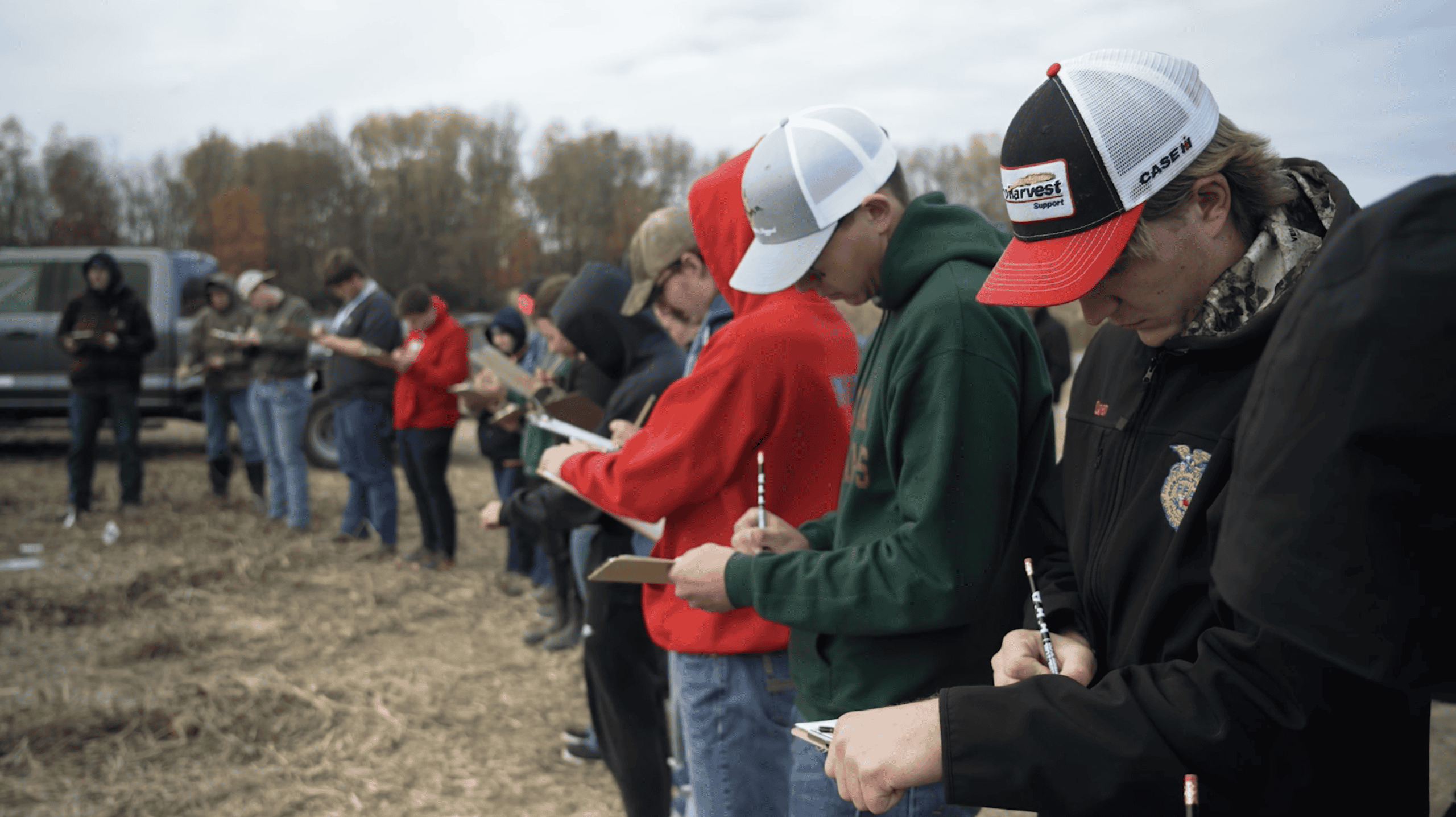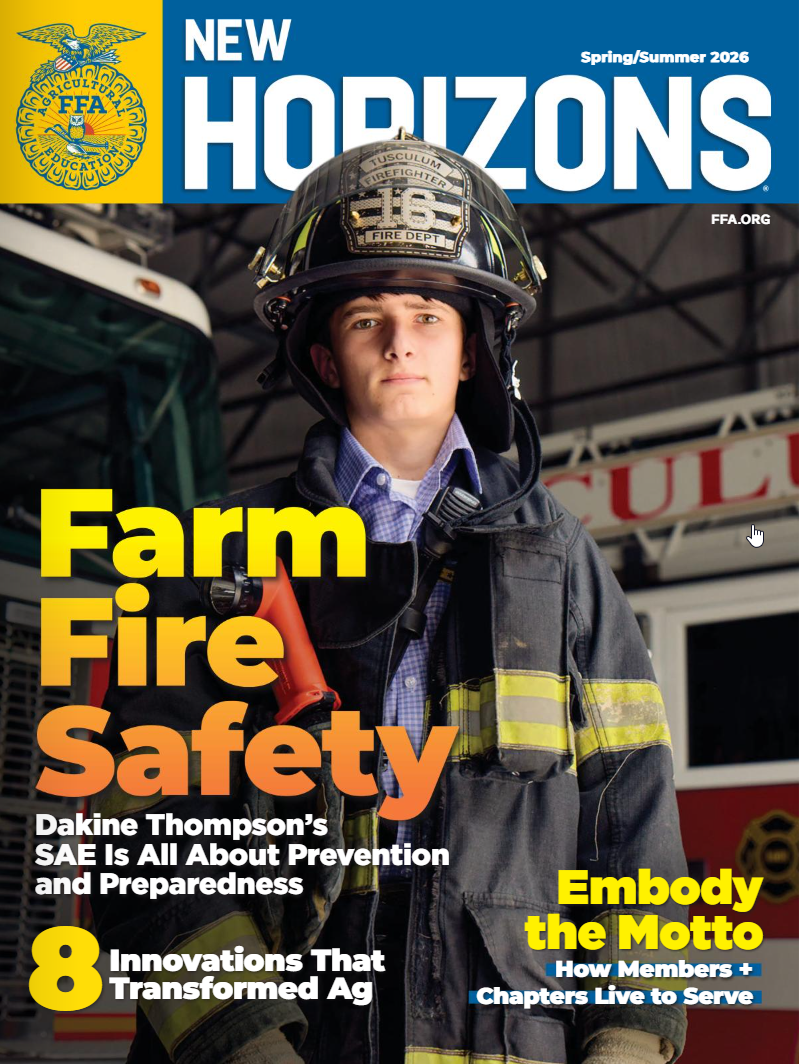Members Dig Deep for Environmental Insights
The Environmental and Natural Resources Career Development Event (CDE), part of the 98th National FFA Convention & Expo, is designed to give students a broad range of skills in the water, soil, ecosystem and waste management industries. Throughout the process, participants gain hands-on experience in GPS mapping, soil analysis, water quality testing, wildlife and equipment identification and team problem solving.
“Students will do anything from soil testing, water testing — they may have a soil profile to look at. They’ll do either a waste or a data type of practicum and then they have a GPS course that they run through,” says Beth Harper, the CDE’s superintendent.
In addition to field practicums, competitors also take a written knowledge exam and an identification test on trees, plants, equipment and wildlife.
“Anything to do with the environment is what we’re trying to get in front of these students,” Harper says.
Members are equipped with general environmental knowledge to build a strong background in water, air, waste and soil management, along with conservation and pollution prevention. As they prepare for the competition, they apply that knowledge to develop career-ready skills in the environmental industry.
“It’s definitely great to get the change of perspective going from seeing a soil problem on the whiteboard to getting down there in the pit and being like, ‘hey, this actually has something to do with how healthy this soil is,’” says Dillon Whitlock, a Watertown FFA member from Tennessee.
Cagney Horton, representing Lafourche FFA in Louisiana, appreciated that the event provides a broad range of knowledge and skills in several different areas.
“It gives you a large variety of everything, from soils to water to just ID,” Horton says.
As students learn more about the environment around them, they also gain an understanding of the importance of managing and protecting natural resources for future generations.
“If we don’t take good care of the stuff that we’ve got, then the next generations after us aren’t really going to be able to use those things,” Whitlock says. “I want those next generations to be able to experience the same things that I get to.”



